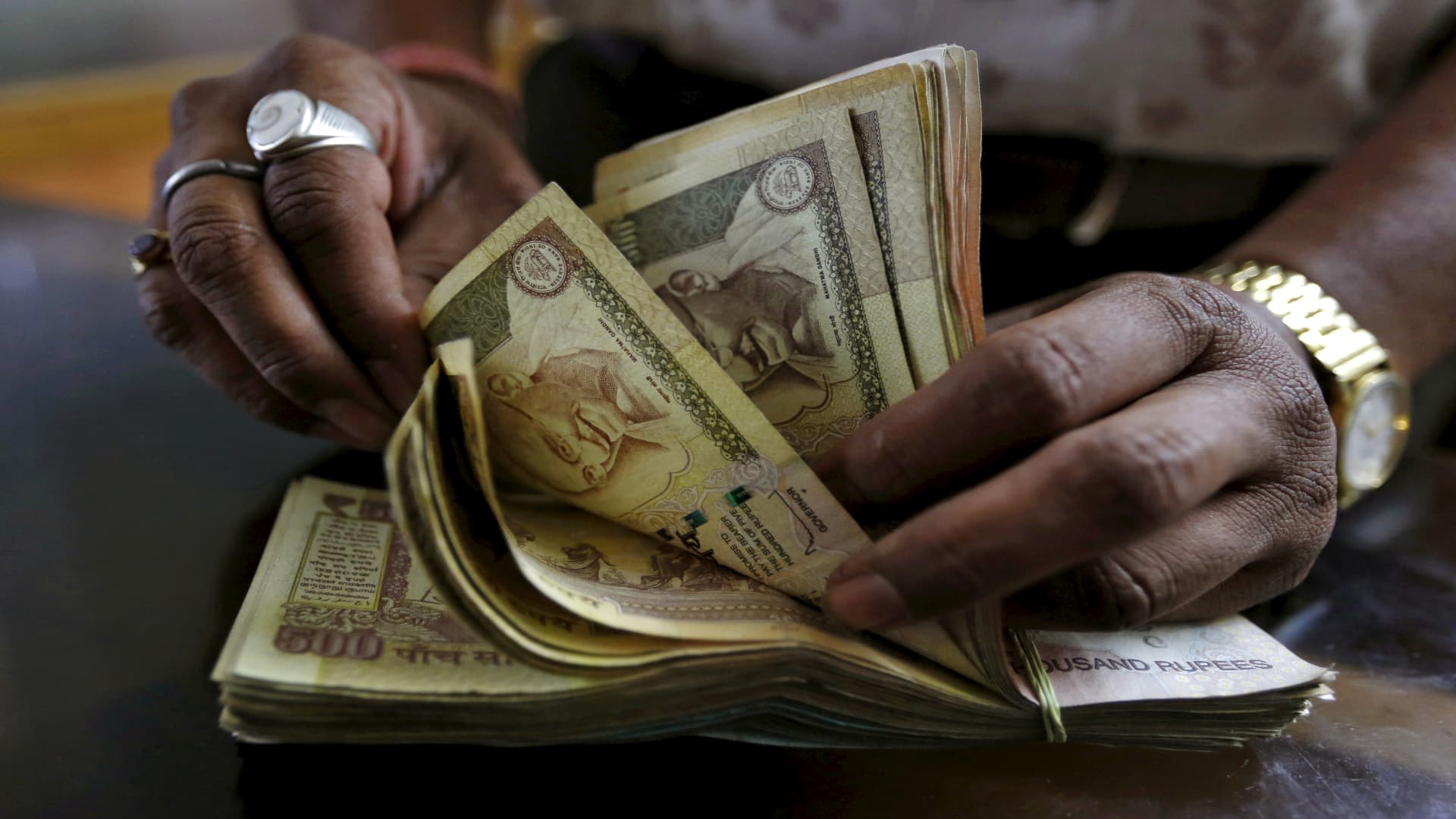
U.S. President Donald Trump, and Anthony Albanese, Australia’s prime minister, shake hands outside the West Wing of the White House in Washington, DC, US, on Monday, Oct. 20, 2025.
Bloomberg | Bloomberg | Getty Images
Shares of some of Australia’s largest critical metals and rare earths companies surged on Tuesday following the announcement of a massive minerals deal between Washington and Canberra worth up to $8.5 billion.
The agreement — signed by U.S. President Donald Trump and Australian Prime Minister Anthony Albanese on Monday — includes funding for multiple projects aimed at boosting the supply of key materials used in defense manufacturing and energy security.
Lynas Rare Earths, Australia’s largest rare earths producer by market capitalization, jumped about 4.7% in early Asia trading. Mineral sand miner Iluka Resources advanced more than 9% while lithium producer Pilbara Minerals added roughly 5%.
Other smaller rare earth miners also made gains, with VHM soaring around 30%, while Northern Minerals popped over 16%. Meanwhile, Latrobe Magnesium, Australia’s primary producer of the critical metal magnesium, rose nearly 47%.
NYSE-listed Alcoa, which is developing a project in Western Australia to recover and refine the critical metal gallium, was identified as one of the two priority projects under the new minerals deal. Washington will make an equity investment in the initiative.
Shares of Alcoa, also traded on the Australian Securities Exchange through depositary receipts, rose nearly 10%.
Rare earths and critical metals are essential for high-tech products such as electric vehicles, semiconductors and defense equipment.
China, the global leader in the production of rare earths and many other critical minerals, has tightened export controls on the materials amid a trade war with the U.S., accelerating international efforts to diversify global supply chains.
Albanese said the two countries will each contribute $1 billion over the next six months for projects that are “immediately available.”
However, a White House fact sheet later stated that Washington and Canberra will invest more than $3 billion in critical mineral projects over the same period, describing the agreement as a “framework.”
The White House also said that the Export-Import Bank of the United States will issue seven letters of interest for more than $2.2 billion in financing, potentially unlocking up to $5 billion in total investment.




